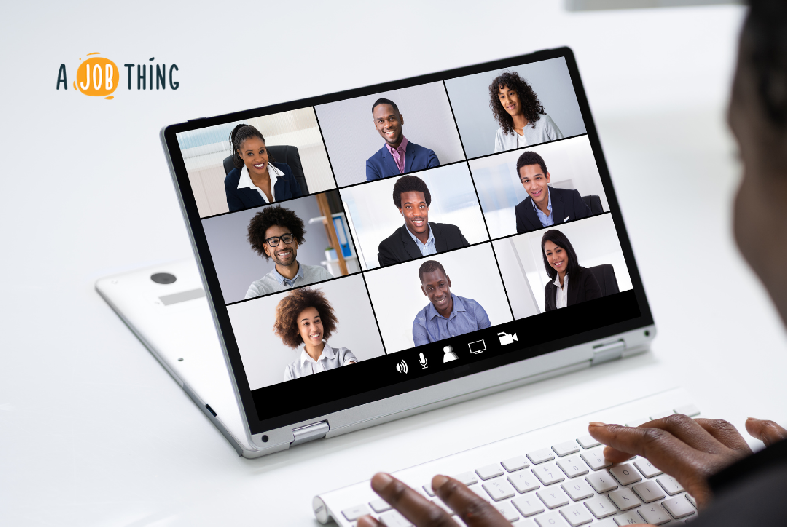
Why Do Business Conduct Video Interviews?
Are You Hiring?
Find candidates in 72 Hours with 5+ million talents in Maukerja Malaysia & Ricebowl using Instant Job Ads.
HIRE NOW
Shorten the hiring process
Video interviews, whether live or recorded, can save time. Consider how much time you've spent welcoming applicants to your office, providing them coffee, moving them to the meeting room, organizing the interview, and then escorting them out. The time spent on that may seem insignificant for a single interview, but consider how it starts to add up with every candidate who appears to be a good fit on paper.
Consider conducting all of those interviews without leaving your desk. Meeting applicants via video allows you to run multiple interviews quickly, which speeds up the recruiting process. This is especially useful when hiring on a large scale.
There are also instances where face-to-face interviews are impossible (e.g. due to the COVID-19 pandemic crisis).
Reduce hiring expenses
When you hire faster, you save money. How? A slow hiring process keeps the position open for an extended period, which can be difficult and expensive for your company when you need that new employee immediately. When, on the other hand, you screen applicants by reviewing their recorded interviews or interview number of applicants per day simply by logging into a video platform, you can proceed towards the next hiring stage and ultimately close the hire faster. Because time is money, this is money you'll save later.
Screening candidates should be automated
Automating a portion of the process is especially beneficial if you have numerous open positions or if recruitment is not your primary job. You can quickly identify deal breakers in candidates' recorded videos using video interview software, and you can optimize manual tasks (e.g. sending individual emails to each candidate or organizing separate phone calls with each applicant).
The benefit of saving time and money on candidate screening is that you can redirect those resources to more critical later stages of the hiring process, such as meeting your most qualified individuals in person.
Standardize the hiring process
Using recorded video interviews can eliminate bias and make your hiring process more reliable. This is because you create a set of questions that are repeated for every applicant in the same role - and, in some cases, for every applicant regardless of the position (e.g. you might always want to find out what applicants know about your company, why they decided to apply, or what their availability is shortly)
This allows you to ensure that essential questions are addressed early every time.
It allows you to ensure that essential questions are addressed early in the process every time. Because the interview is only sometimes conducted by the same person, this significantly contributes to your selection and recruitment lifecycle. A basic procedure means that you provide hiring managers with the tools they need to properly evaluate candidates, even if it is not the central part of their responsibilities or if they are inexperienced interviewers.
Coordinate with the recruitment team
On-demand interviews have the advantage of being available to the entire recruitment team (always using the same video recruitment and selection software that you used to conduct the screenings)
Recruiters, hiring managers, and other team members can watch the recordings, provide feedback, and decide whether to reject or advance a candidate. Rather than having multiple question-and-answer session rounds where different interviewers ask the same specific question or evaluate the same skills at various phases, the recruitment team members can observe the same recording and make more informed hiring decisions.
Increase the hiring quality
Video interviews add a step to the recruiting process. If this step helps you evaluate candidates more comprehensively, it's worth the extra investment.
Important dealbreakers and criteria can be recognized early on, lowering the likelihood of a bad hire or a poor fit once applicants are onboarded. The sometimes absurdly high expenses of replacing an employee can be easily avoided if we make that critical investment - both in terms of time and money - in the early stages of the hiring process.
Recorded video interviews, which the entire hiring team has access to, aid in identifying candidate capabilities and red flags frequently overlooked when candidate screening is limited to resumes and phone calls.
Recruit global talent
You risk missing out on great applicants if you only hire locally. You can use video interviews to communicate with remote employees and individuals from various regions considering relocating. You can also overcome time zone barriers with one-way video interviews, which allow applicants and interviewers to respond to questions and overview recordings at their leisure.
Improve the candidate experience
Applicants frequently experience anxiety during interviews. The applicant's experience is significantly better if candidates know the questions ahead of time so they can prepare adequately. This is accomplished through one-way video interviews. Applicants also can rehearse and evaluate their responses before submitting the best ones. This process relieves stress while allowing hiring managers to assess candidates more clearly and accurately, as nerves can often impair candidates' performance in an interview.
Visit the HR Library to acquire all relevant HR resources.
Contact here for more information on hiring employees.





